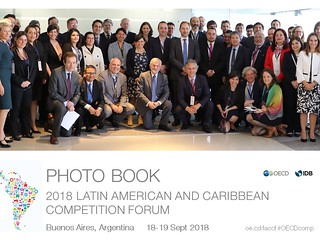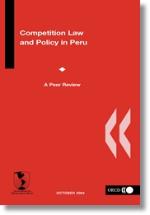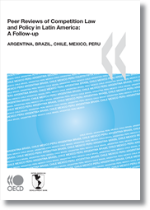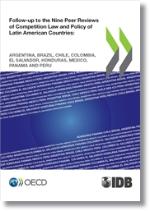2018 Latin American and Caribbean Competition Forum
 18-19 September 2018
18-19 September 2018  Buenos Aires, Argentina
Buenos Aires, Argentina
|
The 16th meeting of the Latin American Competition Forum took place in Buenos Aires, Argentina on 18-19 September 2018. It was hosted by Argentina's Competition Authority, National Commission for Competition Defence (CNDC).
PROGRAMME AND DOCUMENTS:
|

|
|
Session 1. Informal economy in Latin America and the Caribbean |
||||||||||
|
Scope There is no uniform definition of the informal sector in economic literature. Research findings indicate that economic development alone does not lead to a reduction of the informal economy. Although competition authorities may contribute to the formalisation of firms operating in the informal economy through advocacy initiatives, a more direct concern is how to deal with informal firms in competition law enforcement actions and cases. This session tried to identify and discusses the impact on competition in the formal economy, as well as how competition authorities can contribute in solving informality issues and tools that are effective.
Presentations |
||||||||||
|
Session 2. Peer Review of Peru's Competition Law and Policy |
||||||||||
See also: Peer Review of Costa Rica, 2014 Peer Review of Honduras, 2011 Full list of OECD countries reviews of competition policy framework |
||||||||||
|
Session 3. Industrial policy and the promotion of domestic industry |
||||||||||
Presentations |
||||||||||
| Final session. Evaluation and future work |
Related Documents





